#Equitable Future
Text

The stark brutality of chattel slavery is absent in today's world, but the systemic inequities and hidden forms of economic control persist, albeit in different forms. By comparing the conditions of historic slaves with modern working-class people it becomes apparent that economic exploitation and wealth disparity need to be at the forefront of today's political discourse.
Continuities:
Labor exploitation: Both systems extract disproportionate value from a specific group's labor for the benefit of others. Slaves were forced to work without compensation, while many modern workers face low wages, precarious employment, and limited bargaining power, leaving them susceptible to exploitation.
Wealth disparity: Both systems exacerbate wealth inequality. Slaves had no ownership of their labor or its fruits, while the wealth generated by modern workers often concentrates at the top of the economic pyramid, creating a widening gap between rich and poor.
Limited mobility: Both systems restrict upward mobility for the exploited group. Slaves were legally bound to their owners, while modern systemic barriers like discriminatory hiring practices, inadequate education, and debt-based control can confine individuals to lower economic strata.
Psychological impact: Both systems can inflict psychological harm. Slaves endured constant dehumanization and fear of violence, while modern workers can face chronic stress, anxiety, and powerlessness due to precarious employment and economic insecurity.
Transformations:
Formal freedom: Modern workers have legal freedoms and autonomy denied to slaves. They can choose their employers, negotiate wages, and participate in civic life.
Social mobility channels: While limited, some avenues for upward mobility exist in modern society through education, skills training, and entrepreneurial ventures, which were largely unavailable to slaves.
Social safety nets: Modern societies typically have some form of social safety net, albeit often inadequate, providing limited protections like unemployment benefits or healthcare access, which were absent for slaves.
Transformation of control: Control in modern systems is often more subtle and diffuse, operating through debt, lack of ownership, and market forces rather than overt coercion.
Hidden "Economic Slavery":
The concept of "economic slavery" suggests that modern systems can still perpetuate forms of exploitation similar to historical slavery, albeit less visibly. This can manifest in:
Debt traps: Predatory lending practices and high-interest rates can trap individuals in cycles of debt, effectively controlling their labor and choices.
Wage theft: Employers who deny overtime pay, minimum wage, or other earned wages essentially steal from their workers.
Exploitative labor practices: In some industries, migrant workers or marginalized groups face unsafe working conditions, low wages, and limited legal protections, resembling forms of forced labor.
Limited ownership: Lack of access to affordable housing, land, or productive assets limits economic agency and perpetuates dependence on wage labor.
Unveiling and Addressing Systemic Inequities:
Acknowledging the continuities and transformations is crucial for addressing the enduring legacies of economic exploitation. We need to:
Strengthen workers' rights: Promote fair wages, secure employment, and protections against exploitation.
Reduce wealth inequality: Implement progressive taxation, address wage gaps, and promote wealth-building opportunities for marginalized groups.
Increase social mobility: Invest in education, training, and infrastructure to provide equal opportunity for upward mobility.
Challenge systemic biases: Address discriminatory practices in hiring, lending, and access to resources.
Support worker movements: Encourage worker organization and collective bargaining to empower workers and advocate for their rights.
By recognizing the hidden forms of economic control and tackling their root causes, we can work towards a more equitable future where everyone has the opportunity to benefit from their labor and participate fully in society.
#Economic Slavery#Debt#Work#Justice#Slavery#exploitation#Wage Slavery#Debt Trap#Wealth Gap#Worker Rights#Economic Justice#Systemic Inequality#Modern Slavery#Labor Exploitation#Close The Gap#Fair Wages#Equitable Future#Workers Unite#labor creates all wealth#society
9 notes
·
View notes
Text
In Mexico, gender disparities persist in elderly pensions, with only 4 in 10 receiving contributory pensions. Women face lifelong inequalities, leading to reliance on non-contributory pensions for economic security. Urgent reforms are needed for a more equitable future.
#mexico#gender disparities#elderly pensions#contributory pensions#inequalities#non-contributory pensions#economic security#equitable future
0 notes
Text

Let the Playing Field Level the Playing Field by Dennis Joiner
“Let the Playing Field Level the Playing Field” is a fascinating book by Dennis Joiner that explores a future where science and technology have leveled the socioeconomic playing field. Joiner’s visionary ideas challenge readers to rethink social justice and human progress. If you like exploring the possibilities of the future, you should add this book is for you.
Join the conversation about creating a more equitable and abundant future for all. Grab a copy at www.djoinerbooks.com.
#Dennis Joiner#Let The Playing Field Level The Playing Field#ReadersMagnet#Future Of Humanity#Social Justice#Human Progress#Visionary Ideas#Equitable Future#Must Read
1 note
·
View note
Text
Web3 and NFT Communities: Exploring the Future of Decentralized Ownership and Value Exchange
The Emergence of Web3: Enabling New Forms of Collaboration and Economic Models
Web3 technology is rapidly evolving and is poised to revolutionize the way we interact and collaborate online. This new era of the web promises a more decentralized, open, and transparent internet, with increased ownership and control over our personal data and online identities.
One of the most exciting aspects of Web3 is its potential to foster new communities and collaborations, particularly…
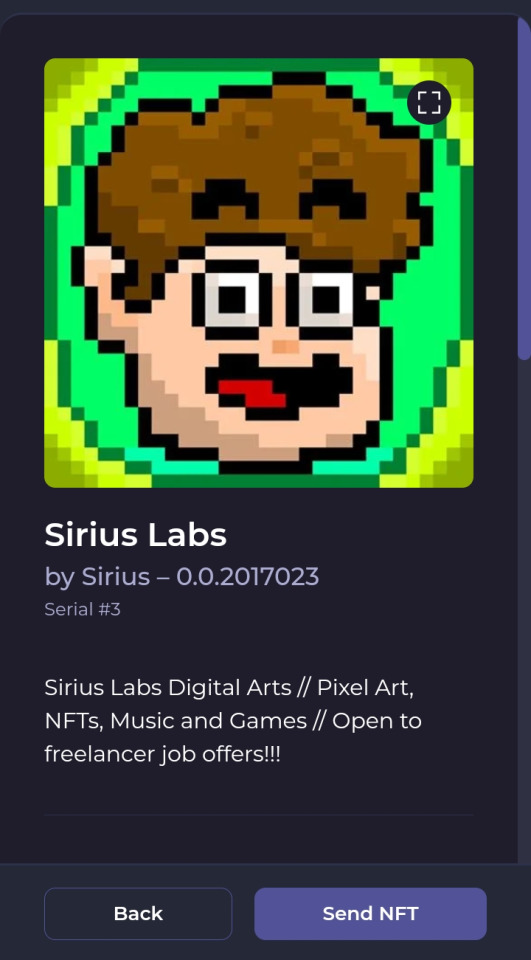
View On WordPress
#blockchain#collaboration#collectors#creators#decentralized#decentralized web#decision-making#digital assets#digital economies#emerging technologies#equitable future#governance#NFT#ownership#smart contracts#social networks#value exchange#Web3
0 notes
Text
Doctors/surgeons should come before a panel of medical experts who are trans before being allowed to administer trans-specific care
#trans#transgender#lgbt#lgbtq#ftm#mtf#nonbinary#this is a half-joke post btw#i kind of want to go in a medical field and while i don't know the ins and outs of what training is for people of minority status...#...it's probably not the best considering how many awful doctors *i've* had...#...i genuinely think we need some reconciliation of this issue because it's unhelpful at best and irresponsible and unethical in some...#...of these cases#so the panel of transsexuals is probably a hyperbole but i think if you're a doctor doing TRANS healthcare...#...then your *trans* patients should be your top priority#again i do kind of want to enter the field and while i don't want to do trans-specific care i would still put my trans patients...#...very highly when considering how to treat patients of trans experience...#...before there is misinterpretation: no i wouldn't prioritize a trans patient over a cis one#all i'm saying is that TRANS-specific healthcare providers should be required to uphold their trans patients...#...and treat them not only well but equitably. same goes for general healthcare providers...#...but it is wild to me that you don't need to have your future patients' best interest in mind in order to enter the field...#...that should be about the FIRST thing you make sure the prospective professional has no?
553 notes
·
View notes
Text

#international men's day#there are far too many of these graphics#that are a underhanded admonishment#of men instead of a celebration of them#all kinds of are you doing enough to dismantle sexism and shit like that#let's work toward a more equitable future for all#that is not what this day is for#it's celebrate men#not do backhanded compliments to men
139 notes
·
View notes
Text
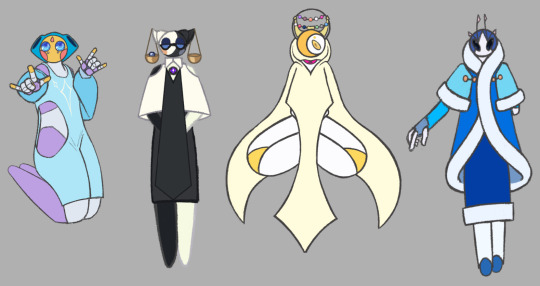
sorry i made more
#iterator oc#eofe.zip#wsw.zip#bts.zip#nff.zip#ns.tiff#behold the stars having a really unfortunate acronym#names: wax sun's wings- equality for equites- behold the stars- nostalgia for futurity#all designed from myukke song jackets#i still have one more to make who desperately needs a better name as the working title is cumbersome#is that the right word. watever#clunky. the word is clunky.
5 notes
·
View notes
Text
There is hope. I promise. Young people just won their case against the state of Montana. Ecuadoreans braved escalating political violence to vote against oil drilling in the Amazon. Brazilian deforestation is down by enormous amounts since Lula took office. They’ve invented hydropanels that synthesise pure water from the air. People are farming in solar parks. A ship just launched for its maiden voyage using rigid sails designed to mimic wind turbine blades. EV sales are taking off, and, more crucially, cities are re-assessing their very relationship with the car. By the 2024 Olympics the river Seine will be safe for people to swim in again. More and more people are replacing their gas boilers with heat pumps. Solarpunks are growing crops in their back garden and distributing them to their neighbours. Great tracts of land are being given back to nature. Young people are channelling their energies into meaningful careers. Pilots are leaving the aviation industry. Yes, the world is dark and terrible and full of awful dangers that keep you up at night, but we are a huge movement that grows every day in numbers and power. Your small actions matter. Our collective triumphs are increasing. Things are going to get harder, extreme weather will be more common, but with ingenuity, resilience and crucially, COMMUNITY, we can build an equitable world on this strange, tired old planet. See you in the future.
#solarpunk#hopepunk#environmentalism#cottagepunk#social justice#optimism#climate justice#community#bright future#tidalpunk
17K notes
·
View notes
Text
Cultivating Meaningful Change Through the Well Health Hub
What change, big or small, would you like your blog to make in the world?
Welcome to the realm of the Well Health Hub, an innovative platform dedicated to effecting positive change on a global scale by nurturing well-being, promoting health education, and fostering empowerment. Within the pages of our blog, a vision unfolds—one that encompasses both the grand and the intricate, intertwining to…
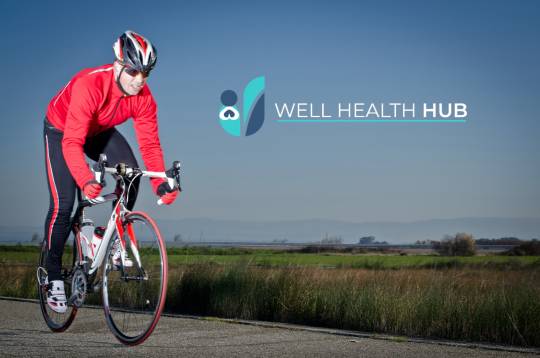
View On WordPress
#addressing stigmas#affordable healthcare#collaborative well-being#community well-being#Cultivating change#dailyprompt#dailyprompt-2024#digital age health#empowerment#equitable healthcare#future-oriented vision#Global health#Health Education#Health Information#Holistic Approach#mental well-being#mindfulness practices#patient-centric healthcare#positive impact#Preventive Care#self-care culture#small changes#sustainable health practices#technological advancements#telemedicine#transformative power#underrepresented voices#Well Health Hub#Well-being
0 notes
Text
I’m not sure who told you the r-slur is acceptable, but I hope you KYS for spamming it.
#this is an example of breaking the rules#to create a more equitable future#leave today for a life on the colonies#a new life awaits
0 notes
Text
Unlocking the Power of Quality Education: Goal 4 for a Brighter Future
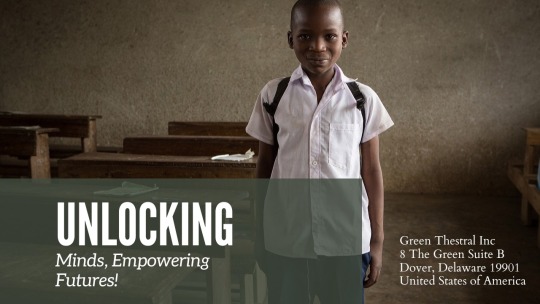
Education is the key that unlocks the doors of opportunity, enabling individuals to reach their full potential and contribute meaningfully to society. Recognizing the importance of education, the United Nations set forth Goal 4 as part of the Sustainable Development Goals (SDGs): Quality Education. This ambitious goal aims to ensure inclusive and equitable education for all, promoting lifelong learning opportunities that empower individuals and foster sustainable development. In this article, we delve into the significance of Goal 4 and explore how quality education can transform lives and shape a brighter future for our world.
Understanding Goal 4: Quality Education
In today's world, access to quality education is not a luxury but a fundamental right. Goal 4 of the United Nations' Sustainable Development Goals (SDGs) recognizes this and places great emphasis on providing quality education to all individuals, irrespective of their gender, socioeconomic background, or geographical location. The goal aims to eliminate disparities in education, promote equal access, and enhance learning outcomes for everyone. By prioritizing quality education, societies can bridge the gaps in knowledge, skills, and opportunities, leading to more inclusive and prosperous communities.
Education is the cornerstone of personal and societal development. It equips individuals with the knowledge, skills, and competencies necessary to lead fulfilling lives and contribute meaningfully to their communities. Quality education goes beyond the mere transmission of information; it nurtures critical thinking, creativity, and problem-solving abilities. It empowers individuals to question the status quo, seek innovative solutions, and actively participate in shaping their own destinies.
Unfortunately, numerous barriers prevent millions of people worldwide from accessing quality education. Gender discrimination, poverty, lack of infrastructure, and armed conflicts are some of the significant challenges that hinder equal access to education. Goal 4 aims to address these disparities and ensure that every individual, regardless of their circumstances, has the opportunity to receive a quality education.
Gender equality is a key focus of Goal 4. Historically, girls and women have faced significant barriers in accessing education, perpetuating gender inequalities in many societies. By promoting equal access to education for girls and women, societies can break the cycle of discrimination and empower women to play active roles in their communities. Educated women are more likely to delay marriage, have fewer children, and contribute to the workforce, leading to economic growth and social progress.
Socioeconomic factors also play a crucial role in determining educational opportunities. Children from disadvantaged backgrounds often face limited resources, inadequate facilities, and a lack of qualified teachers. Goal 4 seeks to eliminate these disparities by advocating for inclusive education systems that provide equal opportunities for all, regardless of their socioeconomic status. It emphasizes the need for targeted interventions to support vulnerable populations, ensuring that no one is left behind.
Geographical location is another significant factor that affects access to quality education. In remote and underserved areas, limited infrastructure, distance, and a lack of resources create significant barriers to education. Goal 4 aims to bridge this gap by leveraging technology and innovative solutions to reach marginalized communities. By embracing digital learning platforms, online resources, and interactive tools, education can transcend physical boundaries and provide learning opportunities to those who would otherwise be left behind.
Enhancing learning outcomes is a core objective of Goal 4. It emphasizes the need for high-quality teaching and learning environments that foster student engagement, creativity, and critical thinking. Achieving this requires investing in teacher training and professional development, ensuring that educators have the skills and knowledge to deliver effective instruction. By empowering teachers and providing them with the necessary support and resources, educational outcomes can be improved, leading to better learning experiences for students.
Collaboration and partnerships are essential for the successful implementation of Goal 4. Governments, civil society organizations, educators, parents, and the private sector must work together to mobilize resources, share best practices, and drive systemic change. Collaboration can help in identifying innovative approaches, scaling up successful interventions, and advocating for policy reforms that prioritize education.
Goal 4: Quality Education is a vital component of the United Nations' Sustainable Development Goals. It recognizes the transformative power of education in creating inclusive and prosperous societies. By eliminating disparities in education, promoting equal access, and enhancing learning outcomes, Goal 4 aims to ensure that every individual has the opportunity to receive a quality education, regardless of their background or circumstances. Achieving this goal requires collective efforts, innovative solutions, and a steadfast commitment to making education a fundamental right for all. By prioritizing quality education, we can unlock the potential of individuals, bridge gaps in knowledge and skills, and build a brighter future for generations to come.
The Transformative Power of Quality Education
Quality education is not merely about acquiring knowledge; it is about empowering individuals to become critical thinkers, problem solvers, and active participants in shaping their own destinies. When education is of high quality, it equips individuals with the tools they need to navigate the complexities of the world, fostering creativity, innovation, and resilience.
Breaking the Cycle of Poverty
One of the most significant impacts of quality education is its ability to break the cycle of poverty. Education equips individuals with the knowledge and skills necessary to secure gainful employment, enabling them to escape the clutches of poverty and build better lives for themselves and their families. By investing in education, societies can create a ripple effect that uplifts entire communities, as educated individuals contribute to economic growth and social development.
Empowering Women and Girls
Quality education plays a crucial role in promoting gender equality and empowering women and girls. When girls have equal access to education, they are more likely to delay marriage, have fewer children, and contribute to the workforce. Educated women are better equipped to make informed decisions, participate in civic life, and challenge societal norms, leading to more inclusive and progressive societies.
Addressing Challenges to Achieve Goal 4
While the vision of Goal 4 is inspiring, numerous challenges must be addressed to ensure its successful implementation.
Access and Equity
Ensuring equal access to quality education remains a pressing challenge, particularly in marginalized communities and conflict-affected regions. Barriers such as poverty, gender-based discrimination, and lack of infrastructure hinder educational opportunities for millions of children worldwide. To achieve Goal 4, governments and stakeholders must prioritize targeted interventions that address these disparities and provide inclusive and equitable access to education.
Teacher Training and Capacity Building
Teachers are at the heart of quality education. Investing in their professional development and ensuring their well-being is vital for achieving Goal 4. Adequate training, support, and resources must be provided to educators to enhance their instructional practices, promote inclusive classrooms, and foster lifelong learning among students.
Innovation and Technology in Education
In the digital era, leveraging innovation and technology can play a transformative role in education. Access to digital tools, online resources, and interactive learning platforms can enhance the quality and reach of education, particularly in remote and underserved areas. Embracing technology-enabled learning methods can open new doors for students, promoting engagement, personalized learning, and the development of essential digital skills.
Collaborative Efforts and Partnerships
Achieving Goal 4 requires a collective effort involving governments, civil society organizations, educators, parents, and the private sector. Collaboration and partnerships are crucial for mobilizing resources, sharing best practices, and driving systemic change. By working together, stakeholders can foster an enabling environment for quality education, leveraging the expertise and resources of various actors to make education more accessible, relevant, and impactful.
Conclusion
Goal 4: Quality Education is a beacon of hope for a brighter future. By ensuring inclusive and equitable education, we can empower individuals, uplift communities, and pave the way for sustainable development. It is imperative for governments, organizations, and individuals alike to prioritize investments in education, address disparities, and embrace innovative approaches. By unlocking the power of quality education, we can create a world where every person has the opportunity to thrive and contribute their unique talents for the betterment of humanity. Together, let us build a future where education is a right, not a privilege.
#Achieving quality education for all#Bridging educational disparities globally#Empowering communities through quality education#The importance of Goal 4: Quality Education#Ensuring equal access to quality education#Breaking barriers to quality education#Transforming lives through quality education#Inclusive education for a brighter future#Goal 4: Promoting equitable learning opportunities#Addressing challenges in achieving quality education#The power of education in sustainable development#Creating a world of equal educational opportunities#Quality education as a catalyst for social change#The role of technology in advancing education#Educating for empowerment and gender equality#Building prosperous communities through quality education#Tackling educational disparities: Goal 4 in action#Unlocking potential through quality education#Education as a pathway out of poverty#Promoting lifelong learning for all#Investing in education for sustainable futures#Ensuring quality education for marginalized communities#Quality education: A key driver of economic growth#Overcoming challenges in achieving Goal 4#Education as a fundamental right for all#Fostering innovation in educational practices#Goal 4 and the future of education#Enabling critical thinking through quality education#Goal 4: Empowering individuals through knowledge#The impact of quality education on societal progress
0 notes
Text
Happy Canada Day from WOOASK!
As celebrated Canada Day a few days ago, lets also remember the work that still needs to be done to create a more equitable & just society.
Join @wooaskappofficial in building a future where everyone has the opportunity to thrive. JOIN US TODAY! 💪📲😎
#translatortools#translate#translationapp#equitable#society#better future#opportunity#thrive#canada day#happy canada day#canadian
0 notes
Text
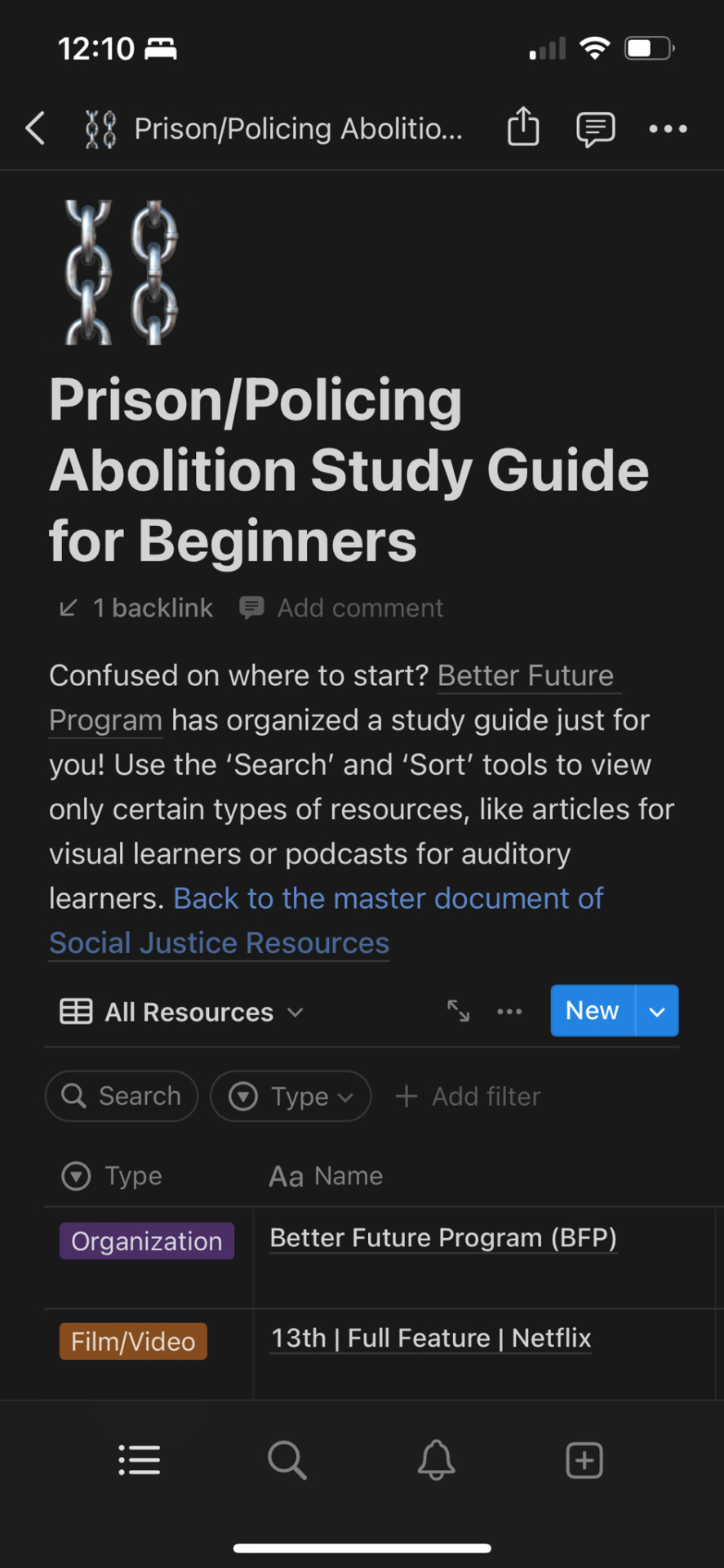
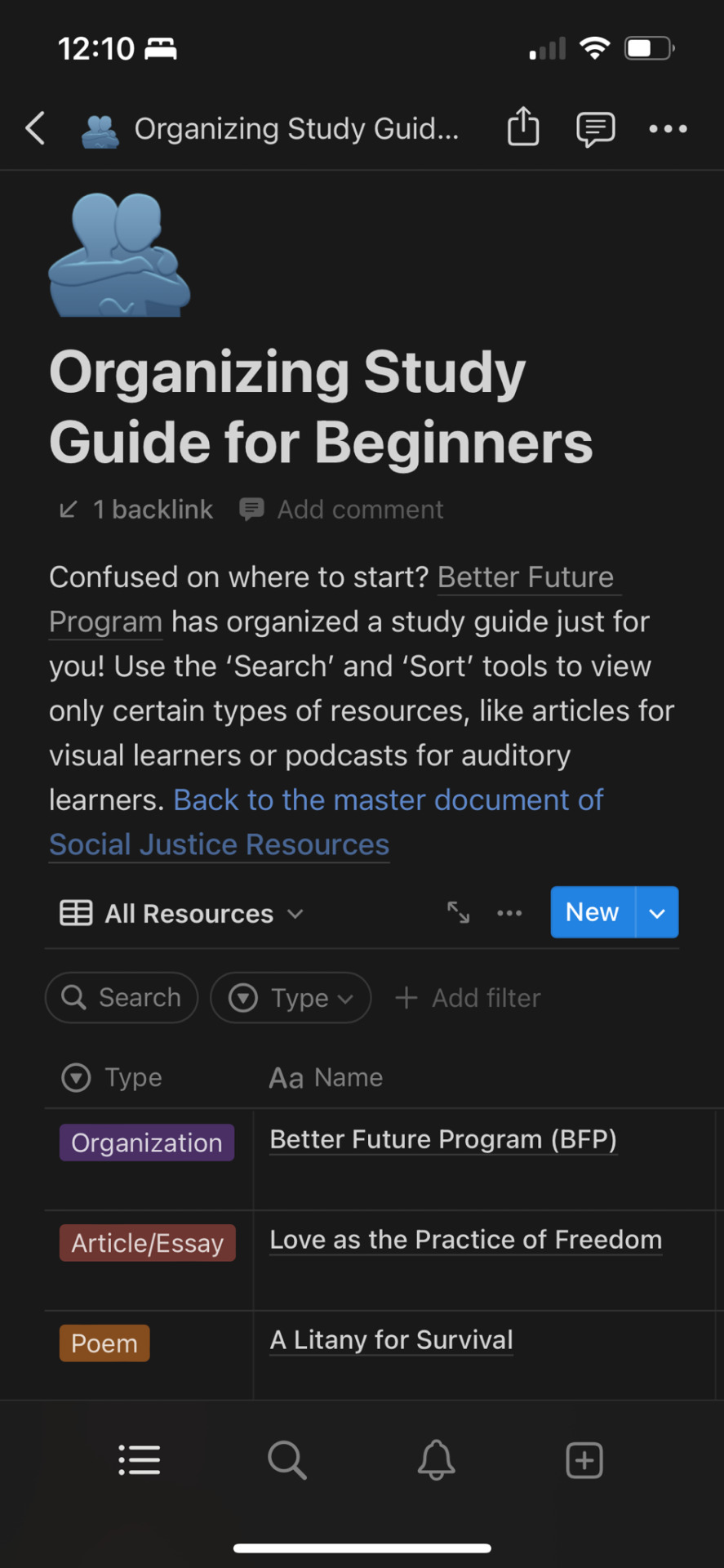

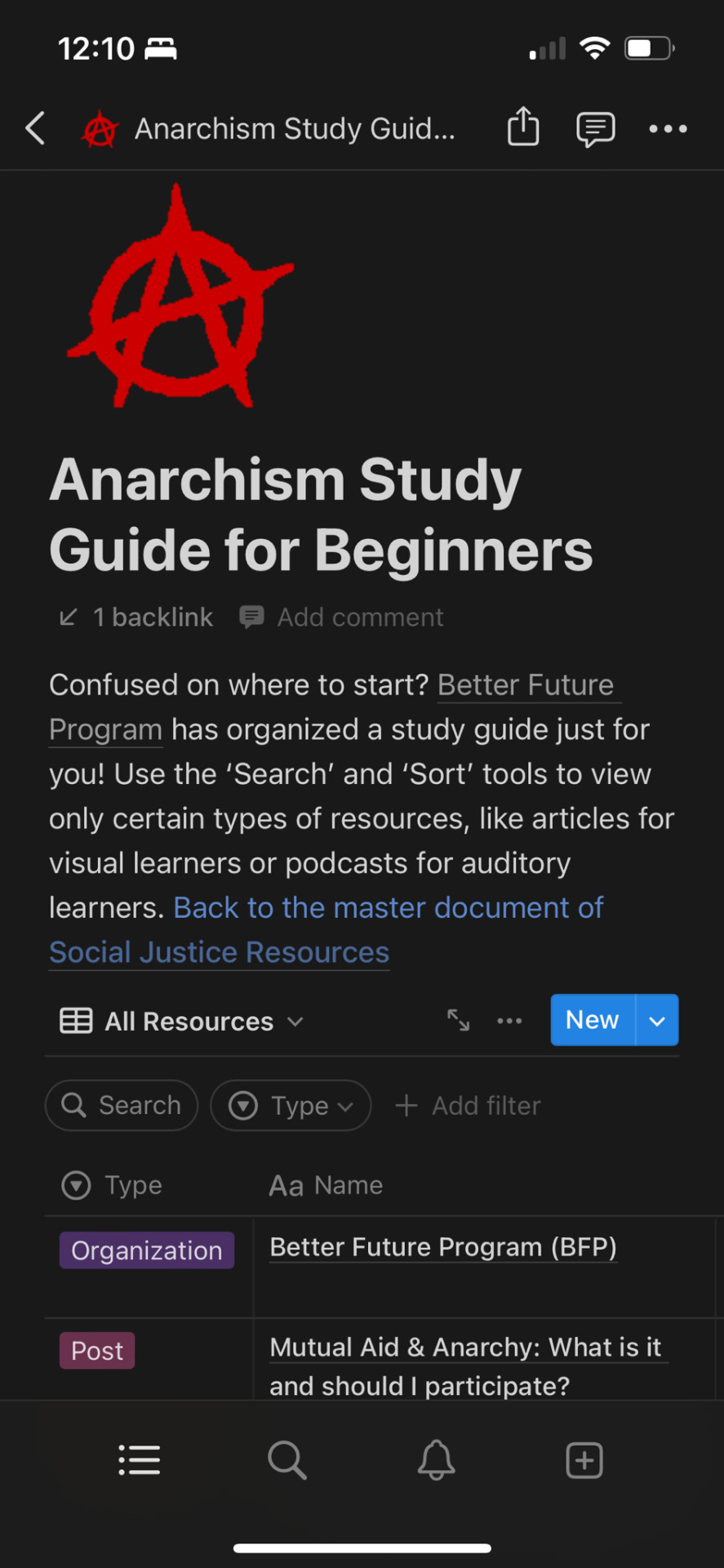
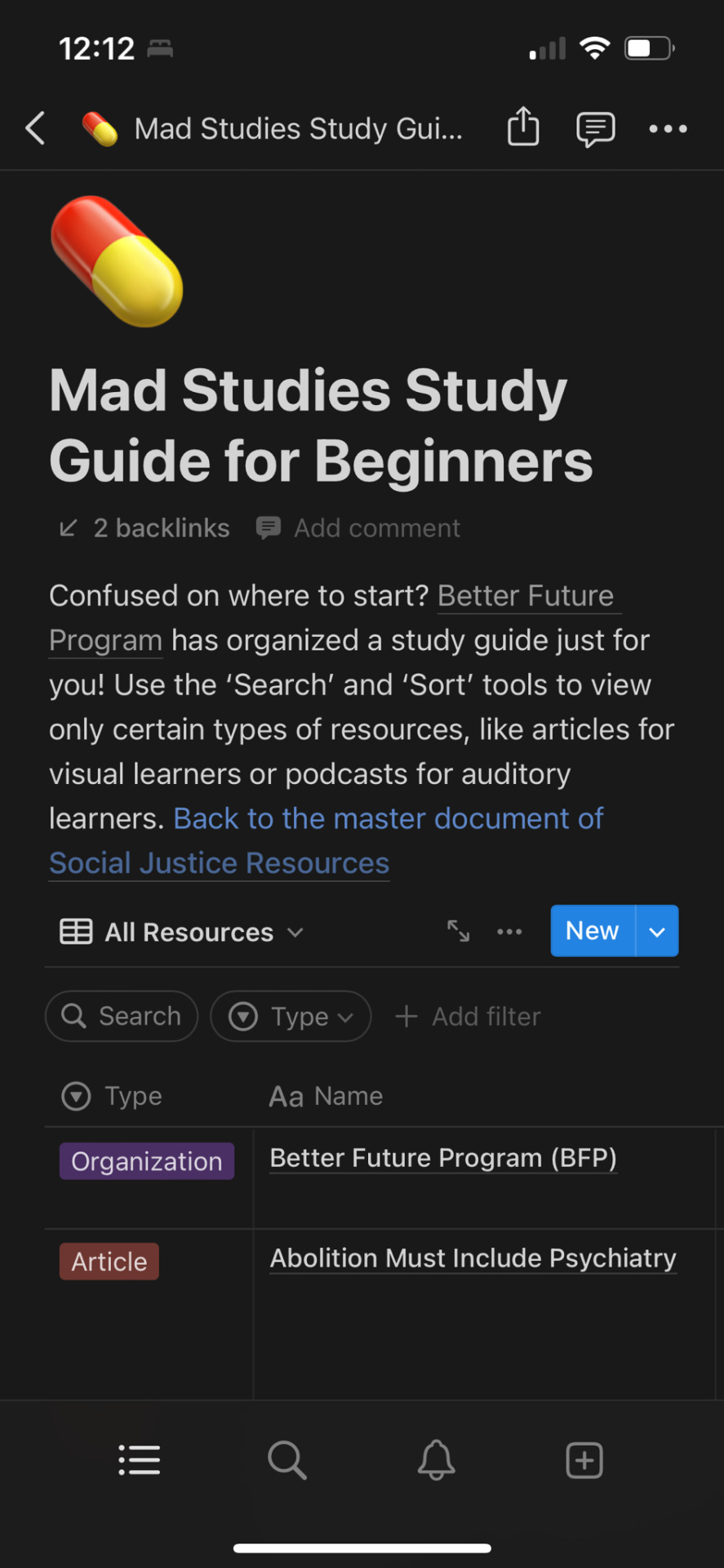
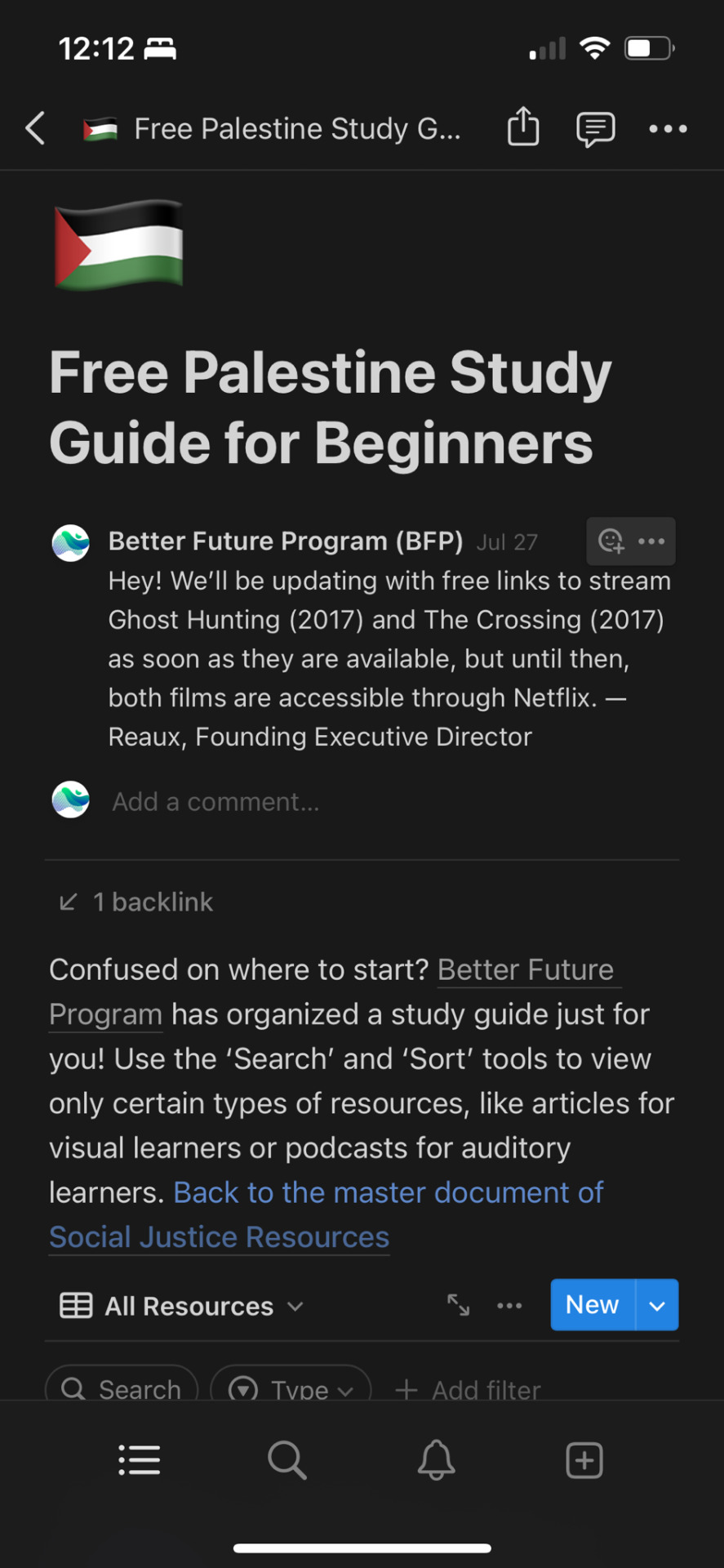
just wanted to remind everyone again not only of the 3,000+ resources offered through our Liberation Library but also of the study guides for beginners offered under each of our social justice topics!
resources can be organized by type (article, novel, podcast, video, etc.) as well as filtered and searched through. we’ve tried to make our system much more accessible than our former platform on google docs so this is such an exciting development to share with everyone.
please share to promote equitable access education!and if you’d like to volunteer with us, check out our open resources committee roles!
REBLOG THIS VERSION! image description by @bonesandblood-sunandmoon below the cut. thank you for writing one!
[Image Description: Six screenshots of beginner study guides on mobile view. The main text visible under each title reads:
Confused on where to start? Better Future Program has organized a study guide just for you! Use the ‘Search’ and ‘Sort’ tools to view only certain types of resources, like articles for visual learners or podcasts for auditory learners. Back to the master document of Social Justice Resources.
Five of the study guides have the start of a list of resources available with color coded resource types visible - Posts have a purple box, for example. Each study guide has an image. Prison/Policing Abolition has an image of chains, Organizing has two humanoid figures hugging, Classism and Anti-Capitalism has a stack of dollar bills, Anarchism has the red ‘A’ in a circle, Mad Studies has a yellow and orange capsule/pill, and Free Palestine has the flag of Palestine.
/End description.]
#reaux speaks#resources#educational equity#abolition#organizing#anti capitalism#anarchism#palestine#mad liberation#free palestine#israel
18K notes
·
View notes
Text
"Cody Two Bears, a member of the Sioux tribe in North Dakota, founded Indigenized Energy, a native-led energy company with a unique mission — installing solar farms for tribal nations in the United States.
This initiative arises from the historical reliance of Native Americans on the U.S. government for power, a paradigm that is gradually shifting.
The spark for Two Bears' vision ignited during the Standing Rock protests in 2016, where he witnessed the arrest of a fellow protester during efforts to prevent the construction of the Dakota Access Pipeline on sacred tribal land.
Disturbed by the status quo, Two Bears decided to channel his activism into action and create tangible change.
His company, Indigenized Energy, addresses a critical issue faced by many reservations: poverty and lack of access to basic power.
Reservations are among the poorest communities in the country, and in some, like the Navajo Nation, many homes lack electricity.
Even in regions where the land has been exploited for coal and uranium, residents face obstacles to accessing power.
Renewable energy, specifically solar power, is a beacon of hope for tribes seeking to overcome these challenges.
Not only does it present an environmentally sustainable option, but it has become the most cost-effective form of energy globally, thanks in part to incentives like the Inflation Reduction Act of 2022.
Tribal nations can receive tax subsidies of up to 30% for solar and wind farms, along with grants for electrification, climate resiliency, and energy generation.
And Indigenized Energy is not focused solely on installing solar farms — it also emphasizes community empowerment through education and skill development.
In collaboration with organizations like Red Cloud Renewable, efforts are underway to train Indigenous tribal members for jobs in the renewable energy sector.
The program provides free training to individuals, with a focus on solar installation skills.
Graduates, ranging from late teens to late 50s, receive pre-apprenticeship certification, and the organization is planning to launch additional programs to support graduates with career services such as resume building and interview coaching...
The adoption of solar power by Native communities signifies progress toward sustainable development, cultural preservation, and economic self-determination, contributing to a more equitable and environmentally conscious future.
These initiatives are part of a broader movement toward "energy sovereignty," wherein tribes strive to have control over their own power sources.
This movement represents not only an economic opportunity and a source of jobs for these communities but also a means of reclaiming control over their land and resources, signifying a departure from historical exploitation and an embrace of sustainable practices deeply rooted in Indigenous cultures."
-via Good Good Good, December 10, 2023
#indigenous#native americans#first nations#indigenous rights#tribal sovereignty#solar energy#solar power#solar panels#renewable energy#green energy#sioux#sioux nation#sustainability#climate hope#electrification#united states#hope#good news
2K notes
·
View notes
Text
youtube
This futuristic city seems interesting, but I think it might have issues locating enough water for the residents.
0 notes
Text


via the Arkansas Advocate
it’s official: in Arkansas, library staff may now be charged with a Class D felony for providing books to their communities that are deemed “obscene”.
in Florida, school librarians and teachers can be criminally charged for checking out books to kids that dare to touch on LGBTQ topics & gender identity, thanks to the “Don’t Say Gay” bill.
book censorship in the US is at such an all-time high, book sanctuaries are popping up all over the country.
library staff aren’t physically safe, either. just over the past couple months, threats against libraries and their staff resulted in the temporary closure of “five public library systems due to bomb and shooting threats," ALA. active shooter trainings have become the new norm for me.
the censorship myself and my colleagues have been watching unfold over the last several years has felt like watching a slow-motion car crash.
but this bill? this feels like a death knell for my profession.
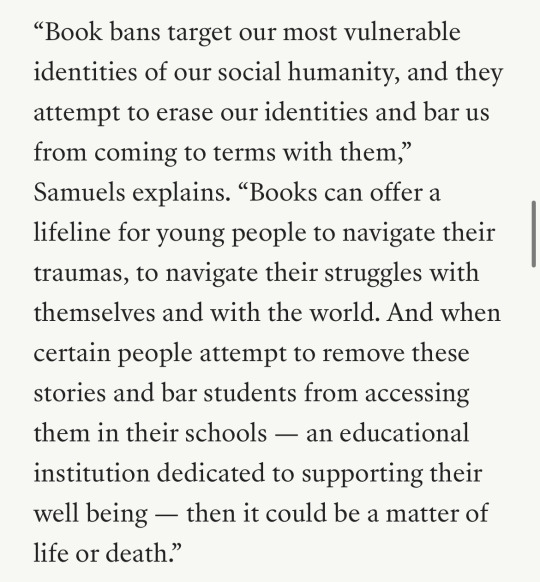
via Teen Vogue
when I was a confused queer kid growing up in an ultra-religious household, the library was my refuge. when I asked hard questions, librarians listened and gave me the tools I needed to answer them. in many ways, libraries saved my life. it's why I became a librarian.
I can't believe I'm living in times where future generations of kids may not have access to the same refuge I did, but it's happening.
if you live in the US and you care about protecting open, equitable access to information, please check out the American Library Association for anti-censorship resources in your state, info on contacting your representatives, etc.
you can also report censorship you see in your community and ALA will investigate (1-800-545-2433, ext. 4266; [email protected]).
I know this isn't my usual content, but libraries are standing on the edge of a horrifying precipice- one we can't escape on our own.
libraries are free society's canary in the coal mine, and all the alarms are singing. when libraries fall, nations usually aren't far behind.
this matters- and we need help.
#censorship#book banning#libraries#banned books#arkansas#florida#public libraries#school libraries#librarians#american library association#american libraries#lgbtq+#lgbtq+ history#us politics#homophobia#transphobia
8K notes
·
View notes